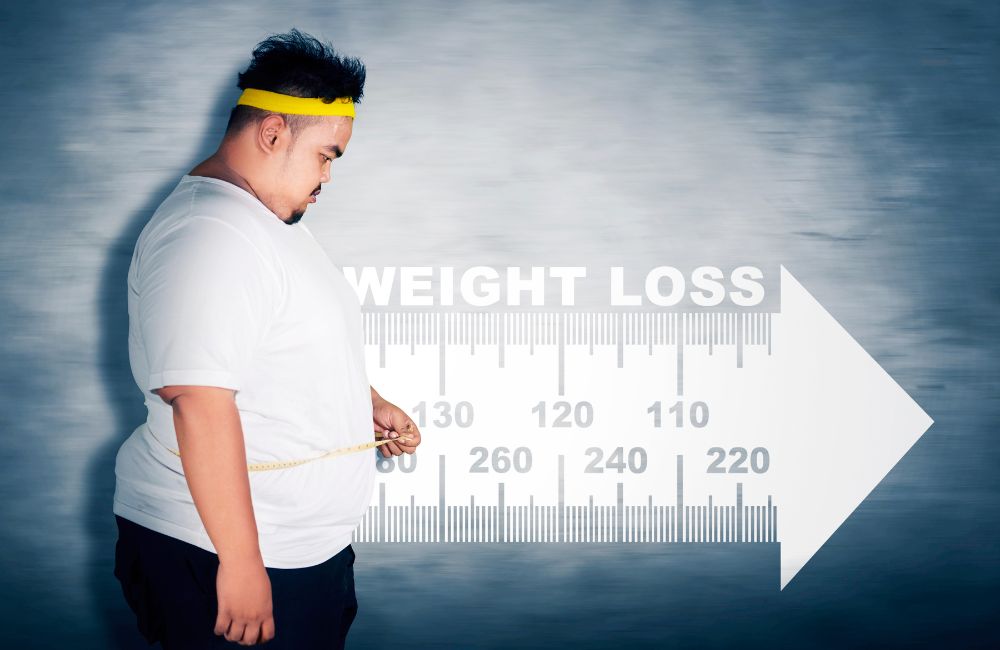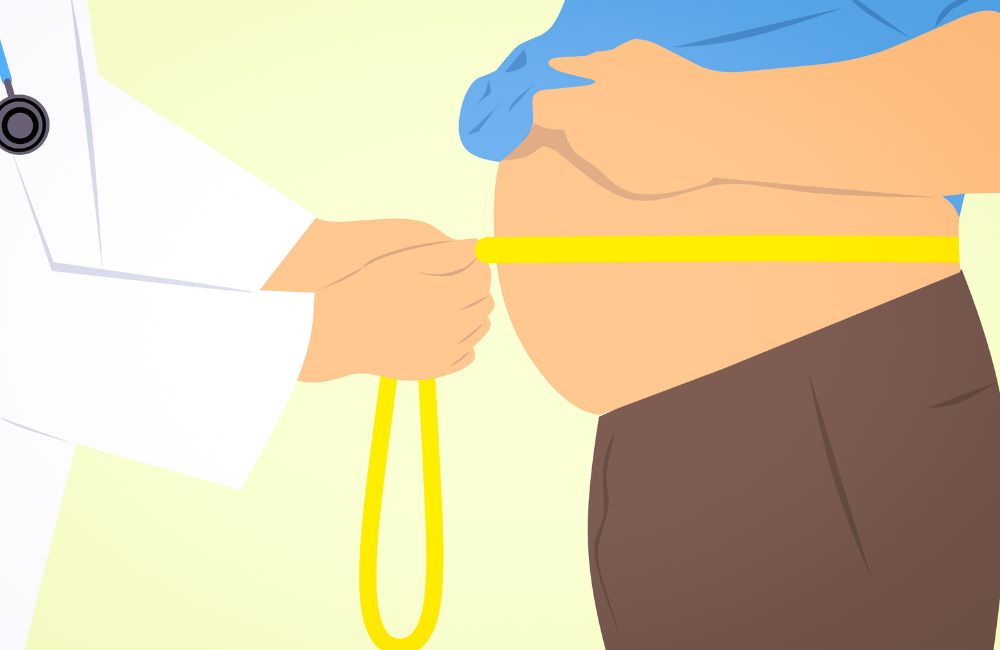
No more dieting and exercising for hours to lose weight. Here, we’ll dive into the best ways to lose weight and keep it off in 2023, according to experts.
According to the CDC, being overweight elevates your risk for many chronic and serious health conditions. While losing weight is not the answer to every health problem, shedding excess body fat can improve your overall health and well-being.
When you begin your weight loss journey, one of the best things you can do is to view healthy eating as a way of life — not a quick fix for weight loss.
Sustainable weight loss takes time. Losing more than 1 to 2 pounds per week can backfire and leave you in a hopeless cycle of yo-yo dieting. The following tips can help you to lose weight safely and keep the weight off.
You’ll also like:
How to Lose 10 Pounds In a Month: 10 Science-Backed Tips
How to Lose 30 Pounds In a Month: 12 Simple Steps, Backed by Science
11 Bizarre, But Simple Ways to Lose Weight Without Dieting, Says an RD
The 9 Best Ways to Lose Weight In 2023

Keep Your Eating Clean
Keep the diet clean by eating whole, unprocessed foods. Processed foods typically contain refined grains and other unhealthy additives. Added sugars and fats can add a substantial amount of empty calories to the diet.
Focus on Whole Foods
Whole foods are unprocessed (or minimally processed) foods that remain as close as possible to their state in nature.
Examples include whole grains, fruits, vegetables, legumes, nuts, seeds, meat, chicken, eggs, and some dairy products.
These foods provide your body with the proper nutrition you need to stay healthy and maintain a healthy weight.
Increase Fiber
Adequate fiber intake is associated with lower body weight (1). There are several possible explanations for this. High-fiber foods take longer to digest and contribute to fullness.
This can prevent overeating and lead to a decrease in food intake. Dietary fiber may also interfere with the absorption of fat. These factors lead to a decrease in energy intake.
And over time can make it easier to maintain a healthy weight. You can get plenty of fiber in your diet by eating a variety of plant foods: whole grains, fruits, vegetables, nuts, seeds, and legumes.
Stay Hydrated
It’s easy to confuse the sensations of thirst and hunger. This is because they often resemble each other: fatigue, headache, and difficulty concentrating. When these signals arise, you might be tempted to reach for food, when what your body really needs is a glass of water.
Doing this repeatedly can make it difficult to achieve your weight loss goals. And the opposite can be true. You might be turning to water when what you really need is nutrition. Complicating matters, sleep and stress can also trigger these sensations.
Here are some tips that can help clear up the confusion:
- Make sure that you are getting quality sleep
- Incorporate effective ways to deal with stress
- Stay hydrated throughout the day. This can help eliminate dehydration as a cause of any sensations that arise
- If you’ve already eaten and you feel hungry, try drinking a glass of water to see if that satisfies you
Plain water is best for hydration, but it isn’t the only beverage that can keep you hydrated. Unsweetened alternatives include lemon or lime water, unsweetened iced tea, and sparkling water.
Add Protein to Each Meal and Snack
Dietary protein is a key nutrient for weight management. The power of protein to keep you satiated can lead to a decrease in the number of calories you consume (2).
Including protein-rich food with each meal and snack can help combat hunger cravings and keep you full for longer.
Examples of high-protein foods include:
- eggs
- cheese
- yogurt
- cottage cheese
- nut butters
- seeds
- beans
- meat
- chicken
- fish
Incorporate Mindfulness
Being mindful simply means being fully present in the moment, without judgment. Mindful eating is about bringing full awareness to each bite of food.
The purpose of mindful eating is not to lose weight, yet weight loss is often a result. The opposite of mindful eating is mindless eating. This is a distracted state where you are disconnected from experiencing food and your body.
The following tips can help you to slow down and enjoy your food:
- When you eat, make sure you are sitting down at a table. It’s difficult to be fully present and mindful if you’re standing or driving.
- Limit distractions — turn off the television and put your cell phone out of reach
- Pay attention to each bite of food — notice the textures and flavors.
- Put your fork down between bites and chew your food completely before swallowing.
- Learn to listen to hunger and fullness signals. If you find that you’re no longer hungry, it’s okay to save some of your food for later.
Manage stress
It’s no secret that stress has the ability to negatively impact our lives and make it difficult to manage weight. Stress results in the release of cortisol.
The chronic release of cortisol is associated with overeating, cravings for sugar, and weight gain.
Chronic stress can also lead to unhealthy behaviors: emotional or mindless eating, skipping meals, trouble sleeping, poor eating habits, and making you more likely to be sedentary.
Here are some effective ways to combat stress:
- healthy eating and lifestyle habits
- daily exercise
- quality sleep
- relaxation techniques
Powerful relaxation techniques include deep breathing, meditation, yoga, and visualization.
Consider Intermittent Fasting
Intermittent fasting (IF) is an eating plan that cycles between periods of fasting and periods of eating. Some people find that having a structured pattern of eating helps them to manage their weight.
When the fasting period is done, it doesn’t mean eating whatever you want. For optimal results, IF should be paired with a well-balanced, whole foods diet. IF is not for everyone. Consult your doctor before starting an IF plan and make sure it is safe for you.
Get a Quality Night’s Sleep
In addition to its key role in maintaining a healthy weight, a quality night’s sleep provides a multitude of health benefits. Multiple studies have linked sleep deprivation to obesity risk (3). Sleep is intricately involved with various hormonal and metabolic processes in the body (4).
Lack of sleep disturbs these natural processes. For example, it disrupts the balance of the hormones that regulate hunger and appetite (5).
This makes overeating more likely, especially late at night. To get quality sleep, make sure your bedroom is cool, dark, and quiet, and your cell phones are turned off.
The Bottom Line
Body fat is essential for optimal health. But too much body fat can be problematic and raise your risk for serious health conditions. Safe and steady weight loss is your best bet for long-term success. It’s also vital to view healthy eating as a way of life versus a temporary diet.
Achieving and maintaining weight loss takes a whole-body approach. Things like keeping your diet clean, choosing whole, fiber-rich foods over processed foods, staying hydrated, daily exercise, and adequate sleep. Overall wellness is essential for long-term success on your weight loss journey.
References
- Slavin JL. Dietary fiber and body weight. Nutrition. 2005 Mar;21(3):411-8. doi: 10.1016/j.nut.2004.08.018. PMID: 15797686.
- Dalia, E. K. Dietary Proteins: A Target for Appetite Regulation. Biochemistry & Physiology: Open Access, vol.1,1 (2012). https://doi.org/10.4172/2168-9652.1000e103
- Beccuti G, Pannain S. Sleep and obesity. Curr Opin Clin Nutr Metab Care. 2011;14(4):402-412. doi:10.1097/MCO.0b013e3283479109
- Sharma S, Kavuru M. Sleep and metabolism: an overview. Int J Endocrinol. 2010;2010:270832. doi:10.1155/2010/270832
- Leproult R, Van Cauter E. Role of sleep and sleep loss in hormonal release and metabolism. Endocr Dev. 2010;17:11-21. doi:10.1159/000262524


